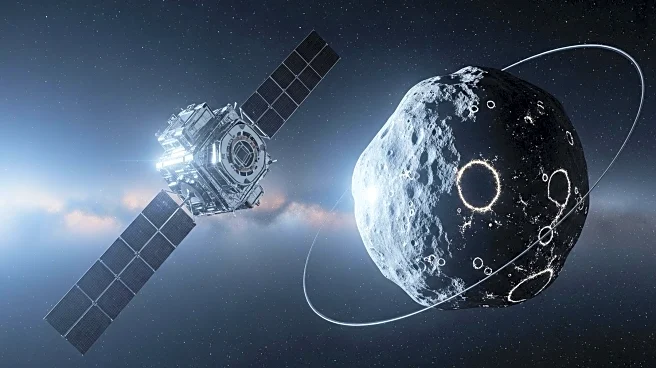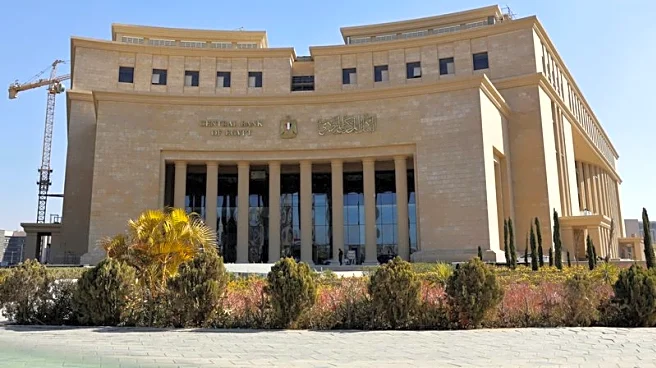What's Happening?
China has announced its plan to deliberately impact a near-Earth asteroid by 2030, marking a significant step in its planetary defense and asteroid resource utilization capabilities. This initiative follows the United States' successful Double Asteroid Redirection Test (DART) mission in 2022, which demonstrated the feasibility of altering an asteroid's trajectory using a kinetic impactor. China's mission involves deploying two spacecraft: one as a kinetic impactor and another as an observer to monitor the collision and its aftermath. The announcement highlights China's growing ambitions in space and its intent to lead in planetary defense technologies, while also signaling its rising influence in outer space affairs. The plan is seen as a cornerstone of a long-term deep-space economy strategy, aiming to create a trillion-dollar space economy by mid-century.
Why It's Important?
The dual-use nature of China's asteroid-collision plan has raised concerns about its potential military applications, particularly in anti-satellite operations. The capability to impact asteroids could be adapted for precision tracking and targeting of orbital objects, posing a threat to global satellite security. This development is significant for U.S. interests, as it underscores the need for vigilance against advancements in counter-space capabilities by China and Russia. The U.S. has previously expressed concerns over China's growing counter-space capabilities, including anti-satellite weapons, which could threaten U.S. space assets and global communications. The geopolitical implications of China's space ambitions could lead to increased tensions and competition in outer space.
What's Next?
China plans to achieve the kinetic impact milestone by 2030 and a propulsion-based deflection test by 2035, with full-scale asteroid orbit technology expected by 2045. This timeline aligns with the expected maturity of asteroid resource utilization, suggesting a strategic blend of planetary defense and economic development. The U.S. may need to enhance its own space defense capabilities and engage in diplomatic efforts to address the potential security threats posed by China's advancements. International cooperation and dialogue on space security and arms control could become increasingly important to prevent conflicts and ensure the peaceful use of outer space.
Beyond the Headlines
China's asteroid-collision research could have broader implications for the future of space exploration and resource extraction. The ability to alter asteroid trajectories opens possibilities for mining valuable niche metals, which could drive economic growth and technological advancements. However, the ethical and legal dimensions of such activities, including the potential militarization of space, require careful consideration. The international community may need to establish regulations and agreements to govern asteroid mining and ensure that space remains a domain for peaceful exploration and cooperation.










